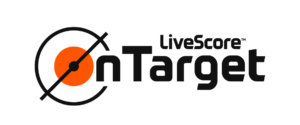By Ben Foster, Director of Digital at the Kite Factory
In the good times, it’s easy for everyone to get along. Business conditions are favourable, shareholders are happy and consumer confidence is high. However, when things start to get tough, as they are right now, tensions mount and organisations that once lived in harmony start to experience friction. There has been growing hostility between the big boys over the last couple of weeks and it came to a head with Apple’s Chief Exec Tim Cook’s attack of Facebook:
“If a business is built on misleading users, on data exploitation, on choices that are not choices at all, then it does not deserve our praise. It deserves reform. Too many are still asking the question ‘how much can we get away with?’, when they need to be asking ‘what are the consequences?”.
Given Apple’s stance on privacy and data control, it’s no surprise that they’re diametrically opposed to Facebook’s view and their arrogant approach in expecting immunity from the impending iOS updates.
However, a less high-profile battleground has emerged in the form of Fortnite taking Apple and Google to a Competition Appeal Tribunal, a move vocally backed by Spotify. Fortnite was banned from Apple and Google’s app stores in 2020 when a new in-game payment functionality launched that didn’t use their respective payment systems, meaning the app stores missed out on their 15-30% cut. This case against the duopoly could escalate and I wouldn’t be surprised to see other big names join the legal action.
Both examples highlight the stature of influence and control these huge organisations have. If Facebook were a country, it would have the biggest population in the world by some margin, and the decisions made by these organisations have considerable impacts.
Governments are starting to wake up to the fact that they are no longer in control. Rather than local legislation, these companies are dictating everything from data sharing in legal cases to the classification of organisations. As a result, their economies are missing out on income from taxes, regulation and in some cases even fair pay. The ongoing case between the Australian government, Facebook and Google regarding content producer payments will be far from the last with several European governments considering following suit. Google’s petulant threat to shut down operations in Australia will do little to dissuade governments from trying to wrestle back at least a modicum of control.
As all of these organisations continue to jostle for position at the top of the food chain, the losers will be consumers who currently benefit from free content and seamlessly integrated experiences, both of which could come under threat as the big boys stop playing ball.









